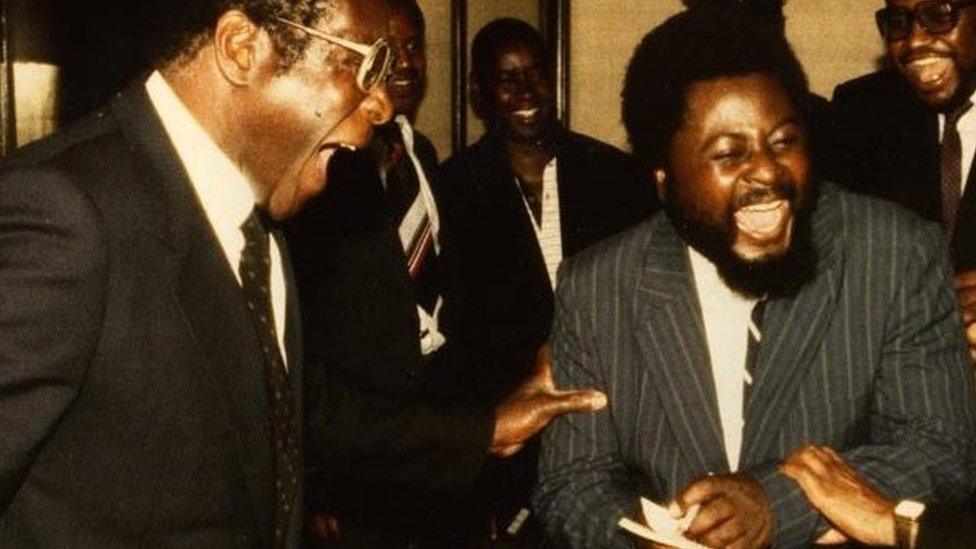Zimbabwe currency crisis: No cash, no bread, no KFC
- Published
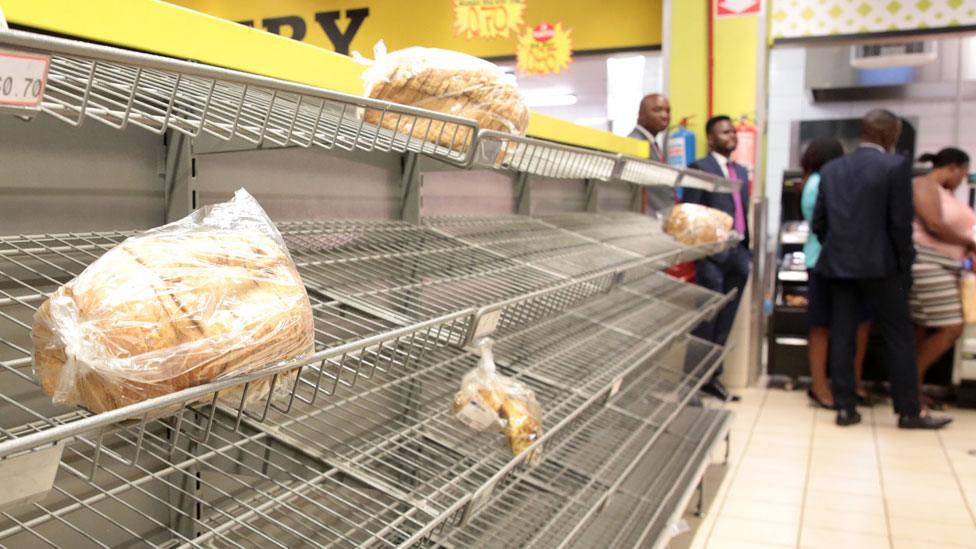
Many shops have run out of essential items like bread
A deepening unease is settling over Zimbabwe as the country's fragile local currency loses value at an alarming speed, prices soar, local and foreign businesses close their doors, and people wonder whether their savings are about to be wiped out once again, as they were during the economic collapse and spectacular hyperinflation that tore through the country a decade ago.
"We are suffering. Inflation is too much. Every minute, every hour, every day, the prices are just changing," said a wholesale trader who did not want to give his name.
KFC has closed its local outlets citing "these difficult times," while supermarkets have been rationing some items, and mining companies and other key exporters are complaining about a lack of access to foreign exchange reserves.
"I'm very worried. It's going to be just like 2008. Or maybe worse," said Grace Chitambara, a nurse waiting in her car in a mile-long queue for petrol in the capital, Harare.
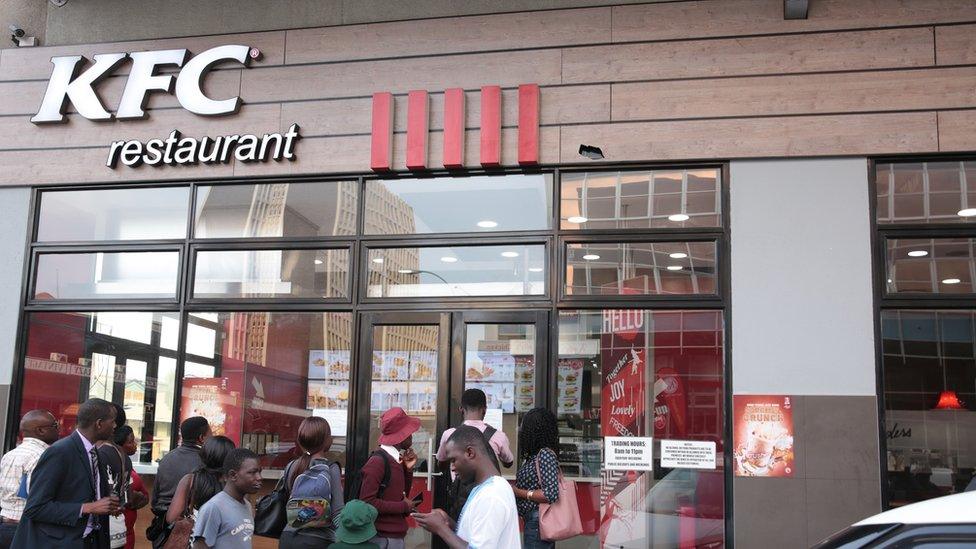
Leading fast-food chains in Zimbabwe have shut their doors as the cash crunch in the country worsens
Concern is rising - along with prices - following a series of unexpected government announcements regarding plans for a new 2% tax on money transfers, and for possible changes to a controversial local currency which had been pegged, one-to-one, to the US dollar.
Fuel imports stopped abruptly, trading has been badly affected, and many businesses have stopped accepting the local bond notes - known here as Zollars or Zim bollars - which black marketeers are now valuing at four, or even five, to the US dollar.
Digging out of a hole
"There's no need to panic," insisted Energy Mutodi, deputy information minister with the governing Zanu-PF.
"What we're seeing is simply the result of speculative behaviour. People started to hoard. But this should normalise in the next few days. Zimbabweans need to know they are safe under Zanu-PF. The government is committed to reforms, so we need people to really be patient."
Almost a year after former President Robert Mugabe was ousted following a military coup, Zimbabwe's government - led by his former party Zanu-PF - is still trying to dig its way out of an economic hole caused by years of reckless spending, corruption, policy uncertainty and sluggish exports.
"It's a pretty big hole. We're suffering the effects of many, many years of misgovernance. We've been living beyond our means and it has come to a crunch," said economist Ashok Chakravarti.
Zimbabwe's new finance minister has recently won some international support for his attempts to chart a path towards financial stability - a path that involves significant spending cuts and privatisation, alongside plans for the foreign debt repayments necessary to unlock new international loans.
'You can rig an election, but you can't rig an economy'
But many here remember how their savings were seized by the government in 2008, and worry about the extent to which Zanu-PF is willing, or able, to tackle entrenched corruption.
Allow X content?
This article contains content provided by X. We ask for your permission before anything is loaded, as they may be using cookies and other technologies. You may want to read X’s cookie policy, external and privacy policy, external before accepting. To view this content choose ‘accept and continue’.

"It's a complete dog's breakfast - a man-made dog's breakfast," fumed opposition MDC Alliance MP Tendai Biti, a former finance minister in Zimbabwe's short-lived unity government, who points to the disputed election that kept Zanu-PF in power.
"People have no confidence in this regime. You can rig an election - as they did on 30th July 2018 - but you can't rig an economy, you can't rig a supermarket or a gas station. So, we have a fundamental crisis of legitimacy. Ordinary men and women are suffering because of self-induced policy distortions. It's madness. This is a basket case."

You might also like:
In 2009, Zimbabwe scrapped its own by-then-worthless currency and relied instead of a range of foreign currencies until 2016, when the bond note was added to the mix, amid deep concerns that it would be used to hide more corruption and unchecked government spending.
No-one here underestimates the size of the mess that Mr Mugabe left behind in Zimbabwe, or the deep divisions within Zanu-PF, or the scale of the challenge ahead, but some analysts believe that the new cabinet is, slowly and erratically, making some of the right steps.
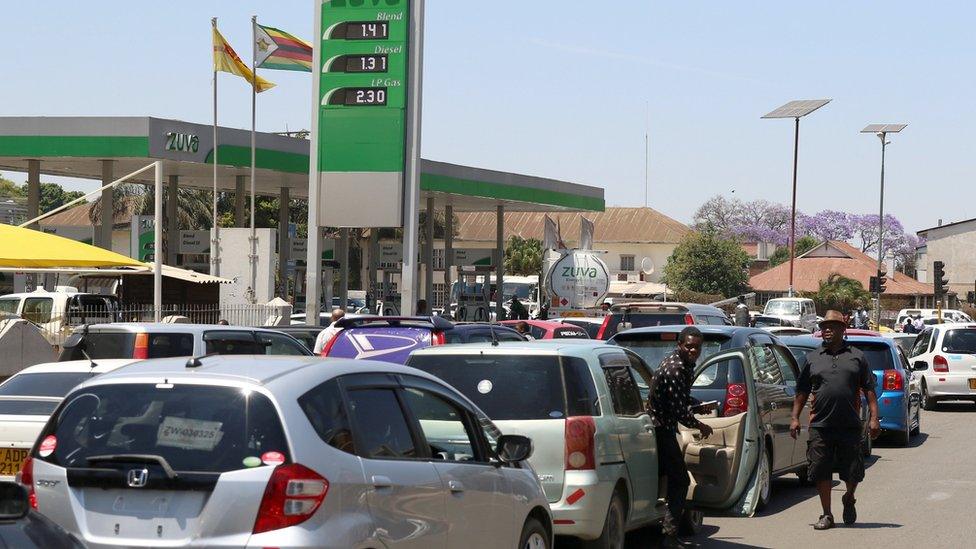
The crisis has led to a shortage of fuel with motorists having to queue for petrol
"There's an enormous deficit of trust - a lack of confidence," Mr Chakravarti acknowledged.
But he believes the government must be given more time, and that the sharp fluctuations in the value of the local bond are inevitable, and perhaps necessary.
"We have to accept there will be a currency adjustment. Prices for a lot of non-essential items, in particular, are going to increase. We have tough times ahead. But governments do turn a new leaf and I think they should be given a chance to show what they can do. Things can change. The turnaround can be quite quick."
- Published25 July 2018
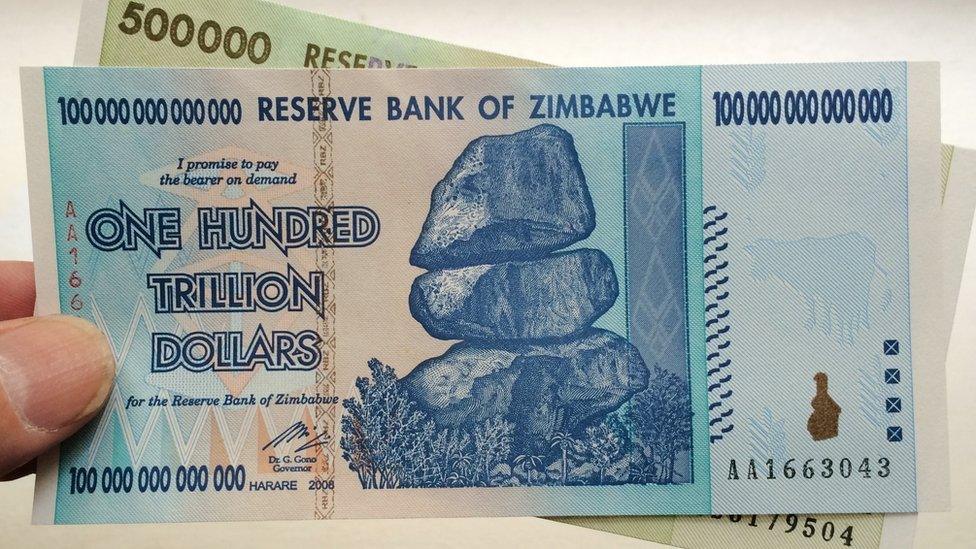
- Published26 July 2018
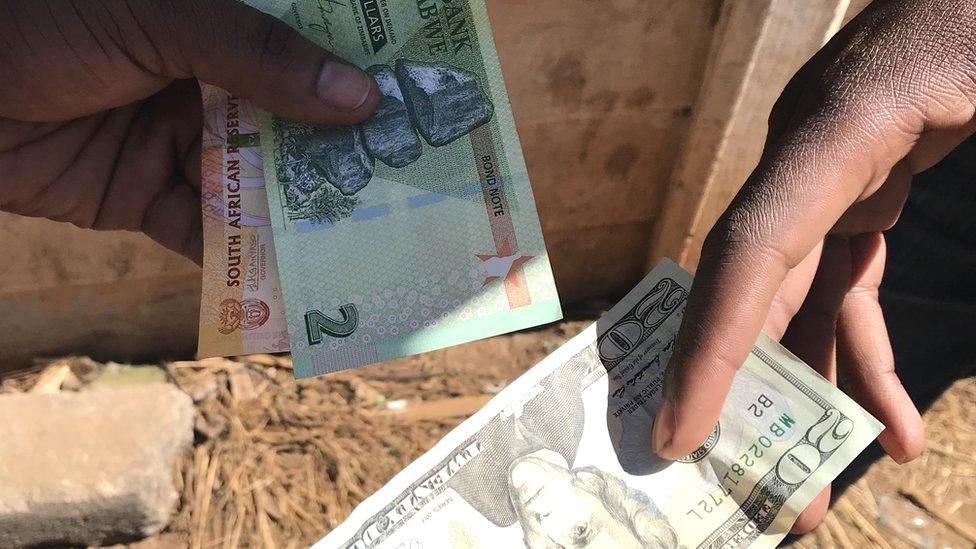
- Published22 September 2018
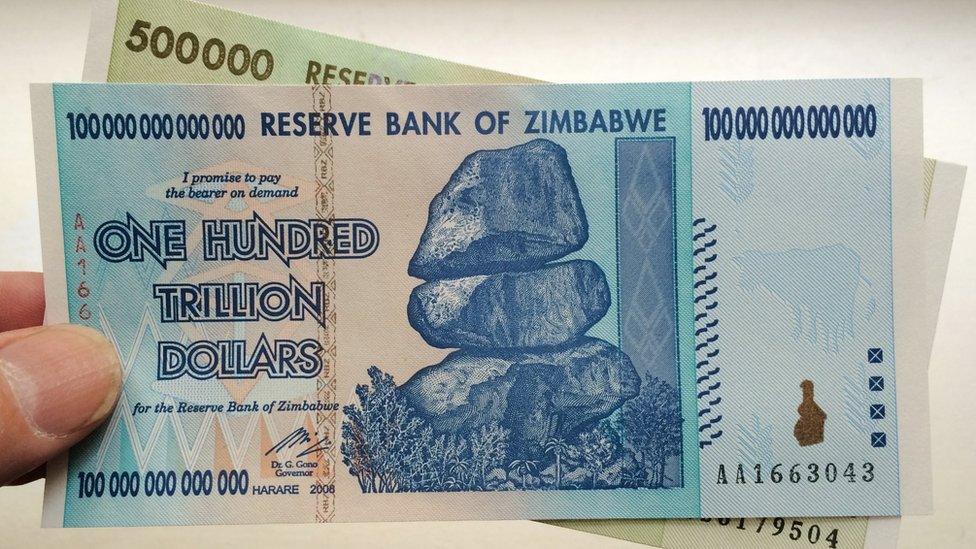
- Published4 August 2018
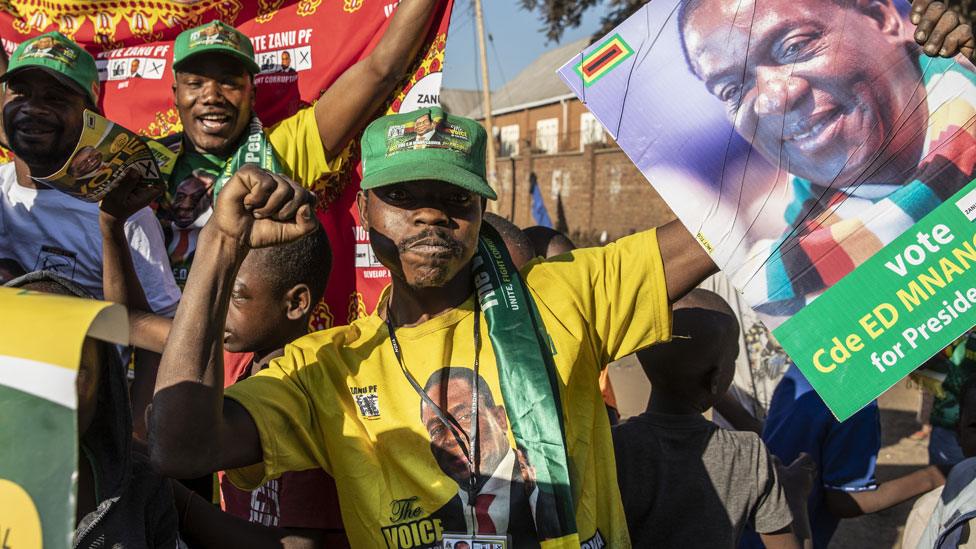
- Published12 September 2018
